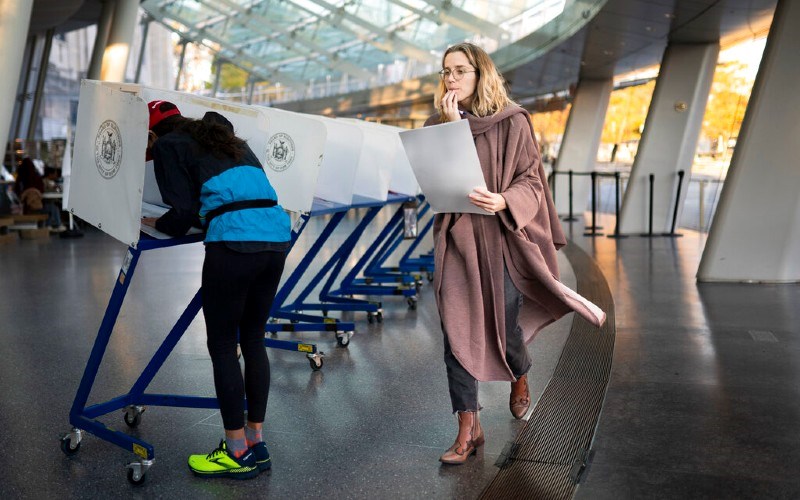A June Rasmussen poll found that a slight majority (54%) of likely American voters expect cheating to influence the 2024 presidential election – and more than half of those consider it "very likely" to happen. Threats to election integrity over the years include ballot harvesting, mail-in voting, names of the deceased still on state voter rolls, and same-day voter registration.
Ken Blackwell, the senior fellow for human rights and constitutional governance with Family Research Council, believes emphasis on the ease of casting ballots is important – but not the main thing.
"We've spent a lot of time concentrating on voter rights, which has been appropriate, but we actually should deal with the duties of citizenship," Blackwell said on Washington Watch Thursday. "We might have to take a little time to make sure that we do those things … that people will have confidence that voters are who they claim to be, and that the process is free of corruption."
Harvard's Kennedy School of public policy and leadership interviewed more than 800 scholars of elections, parties and state politics across all 50 states and Washington, DC. The experts overwhelmingly rejected the "stolen election" theme of former President Donald Trump.

However, the group concluded that several flaws exist that undermine the election process – including gerrymandering, campaign finance, and misinformation. The findings stopped short of addressing mail-in voting or alleged improprieties at polling stations.
Blackwell stressed the need for greater transparency in all elections, something that he doesn't believe can happen with mail-in voting. He argues that too much is at stake to rely on a system that warns upfront it will lose three of every 100 ballots.
"By their own admission, the U.S. Postal Services loses 3% of the mail. If you begin to take a look at how many races for city council, mayors, state legislatures, Congress and the presidency are won within the margins of litigation, you know that we can't afford to move to a system where we're apt to lose 3% of the ballots," Blackwell told show host Joseph Backholm.
How will things be different from 2020?
The former Republican candidate for Ohio governor acknowledged that COVID-19 precautions were an added wrinkle in 2020. Since then, he said, he's seen some efforts to increase election integrity – but not enough.
"There have been moves to make sure voters are who they claim to be through the signature-verification process, but there have also been states where there has been a loosening of the voting processes," Blackwell noted.
The key to a less tumultuous voting experience in 2024, he argued, will be engagement by the electorate.
"It's imperative that we are very vigilant as we go into this election with engagement, using our human agency; not sitting on the sidelines, not ringing our hands, but getting involved in the process," Blackwell concluded.
"We have to constantly work to make sure it's easy to vote – but hard to cheat."







